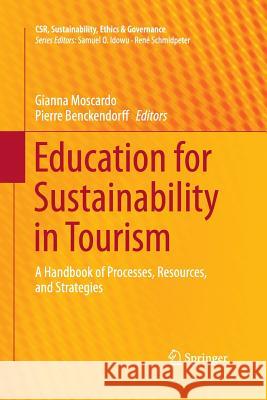Education for Sustainability in Tourism: A Handbook of Processes, Resources, and Strategies » książka
topmenu
Education for Sustainability in Tourism: A Handbook of Processes, Resources, and Strategies
ISBN-13: 9783662512685 / Angielski / Miękka / 2016 / 290 str.
Education for Sustainability in Tourism: A Handbook of Processes, Resources, and Strategies
ISBN-13: 9783662512685 / Angielski / Miękka / 2016 / 290 str.
cena 384,63 zł
(netto: 366,31 VAT: 5%)
Najniższa cena z 30 dni: 383,73 zł
(netto: 366,31 VAT: 5%)
Najniższa cena z 30 dni: 383,73 zł
Termin realizacji zamówienia:
ok. 20 dni roboczych.
ok. 20 dni roboczych.
Darmowa dostawa!
Kategorie:
Kategorie BISAC:
Wydawca:
Springer
Seria wydawnicza:
Język:
Angielski
ISBN-13:
9783662512685
Rok wydania:
2016
Wydanie:
Softcover Repri
Ilość stron:
290
Waga:
0.43 kg
Wymiary:
23.39 x 15.6 x 1.63
Oprawa:
Miękka
Wolumenów:
01











